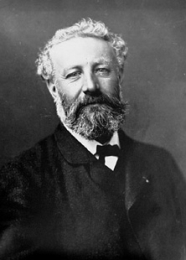Nicht lieferbar

Facing the Flag (Esprios Classics)
Versandkostenfrei!
Nicht lieferbar
Facing the Flag or For the Flag is an 1896 patriotic novel by Jules Verne. The book is part of the Voyages Extraordinaires series. It has the theme of France and the entire world threatened by a super-weapon with the threat finally overcome through the force of French patriotism. It can be considered one of the first books dealing with problems which were to become paramount half a century after its publication in World War II and the Cold War: brilliant scientists discovering new weapons of great destructive power, whose full utilization might literally destroy the world.










